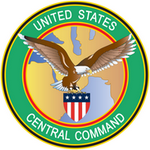There are no good guys. But the real concern now is that the jihadists will have the world's largest supply of chemical and biological weapons once Assad goes down.
And that will be a real nightmare.
And that will be a real nightmare.
(NRO) Our collective excitement at the possibility that the Assad regime will be destroyed, and the Iranian ayatollahs weakened in the process, is blurring our vision and preventing us from seeing the rise of al-Qaeda in Syria. In March of this year, jihadis mounted seven attacks against Assad. By June, they had led 66 “operations,” and over half of these were on Syria’s capital, Damascus. The Syrian opposition is benefiting hugely from the terrorist organization’s determination, discipline, combat experience, religious fervor, and ability to strike the Assad regime where it hurts most.
The territory in the Middle East that al-Qaeda covets most is of course Saudi Arabia, but Syria is next on the list. Now, Syria is not Syria to jihadis, but part of Bilaad al-Shaam, what the region was called when when borders did not divide the lands we now call Jordan, Syria, Lebanon, and, crucially, Israel and the Palestinian territories. To al-Qaeda, these modern-day countries are based on artificial borders created after the First World War by the British and French, descendants of the eleventh-century Crusaders who occupied Jerusalem. Yes, al-Qaeda has a long historical memory, but it also has plans for its future. And in Bilaad al-Shaam, the future is looking good for al-Qaeda.
As long as Assad governs Syria, brigades of Arab and other Muslim fighters will continue to gather in Bilaad al-Shaam to support the jihad of the Sunni Muslims against an Alawite infidel, as they see it. Assad offers them a rallying point. In the process, al-Qaeda’s local franchises will win support and create alliances with Syria’s tribes and Sunni religious leaders. In the event of Assad’s falling, al-Qaeda will probably gain de facto control of parts of Syria to serve as a new strategic base for jihadis in the Middle East, or at least enjoy tribal protection in the broader regions with Iraq and Jordan. A new government in Syria not only will be indebted to these fighters, but also will be in need of their cooperation to minimize the potential of militias fighting each other.
More...

 31%
31% 21%
21%




















